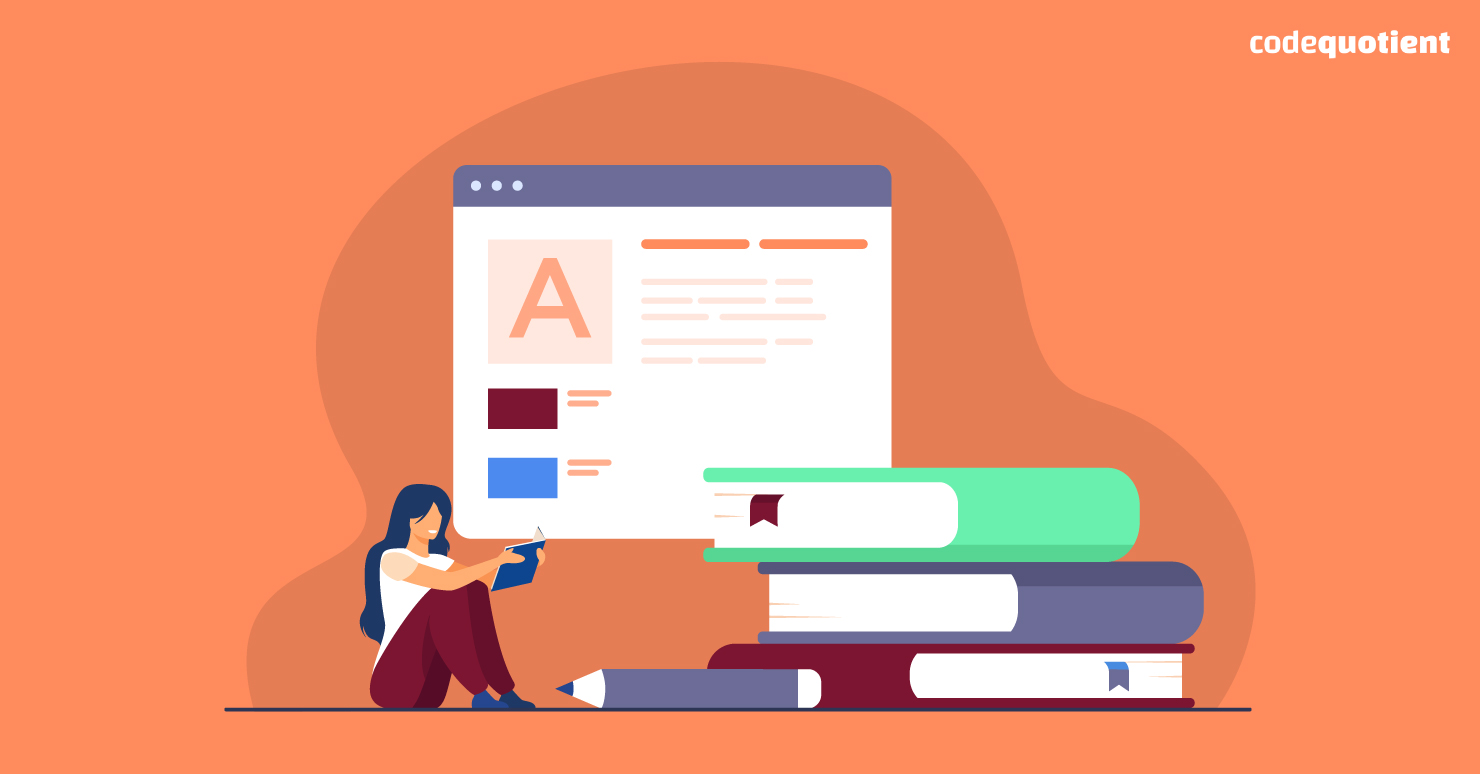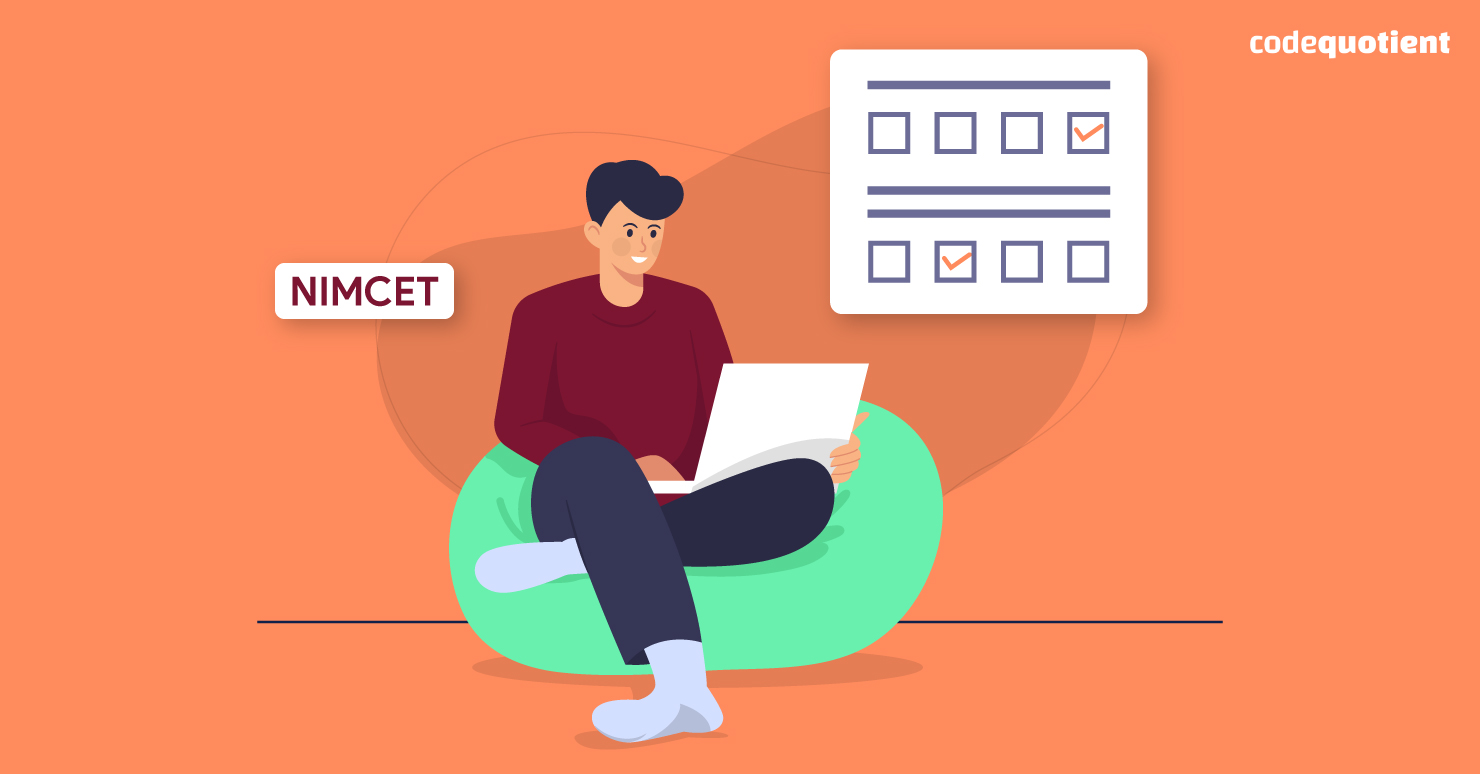National Institutes of Technology (NITs) are Institutions of National Importance under the MHRD (Ministry of Human Resource Development) of the government of India. NIMCET (National Institute of Technology Master of Computer Applications Common Entrance Test) is a common qualifying examination conducted by NITs every year at a national level to obtain admission into their MCA program.
Ten NITs located in Agartala, Allahabad, Bhopal, Calicut, Jamshedpur, Kurukshetra, Raipur, Surathkal, Tiruchirappalli, and Warangal offer the MCA program.
Many universities and institutions also consider the NIMCET score for admissions to their MCA programs. So, this exam is directly related to your career and the job you land in the future.
NIMCET Eligibility Criteria

The NIMCET eligibility criteria include nationality criteria, educational qualification, marks criteria, etc. In addition, candidates belonging to the OBC category will have to fulfil both caste and creamy layer criteria. They will have to submit an OBC certificate when they apply online. However, the original certificate can be produced at the time of admission. There is no age limit prescribed for all applicants.
Let’s see the various eligibility criteria in detail:
(A) Nationality Criteria:
Eligible candidates must be of Indian origin.
(B) Education Qualification Criteria:
Educational qualification criteria comprise three sub-criteria viz.
Qualifying Exam
B.Sc. / B.Sc. (Hons) / BCA / BIT from a recognised University with Mathematics/ Statistics as one of the subjects.
OR
B.E./ B.Tech. from a recognized University.
Appearing Candidates
Eligible candidates who are appearing for their degree exams can also apply, provided they submit their degree certificates at the time of counselling.
Open Candidates
Candidates from open universities (with B.Sc. / B.Sc. (Hons) / BCA / BIT) are also eligible to apply. Their degrees must be approved by the UGC/AICTE/DEC (Distance Education Council) of the Government of India.
(C) Qualifying Marks Criteria:
- Eligible candidates must obtain a minimum of 60% marks in aggregate or 6.5 CGPA on a 10-point scale in the qualifying exam.
- As regards SC/ST candidates, the minimum mark to be obtained is 55% or 6.0 CGPA on a 10-point scale.
- Converting score marks from CGPA to percentage and vice-versa will not be entertained.
Calculation of the percentage of marks/ CGPA in the qualifying exam:
The percentage/CGPA will be calculated based on marks or grade points obtained in all the subjects studied across all the years, including languages, optional, and additional subjects studied, if any.
NIMCET 2024 Syllabus:
Let’s go ahead and find out about the
#1 Mathematics (50 Questions):
Set Theory:
Set theory encompasses the concept of sets—the union of sets, the intersection of sets, elementary counting, cardinality, permutations, and combinations.
Coordinate Geometry:
Rectangular Cartesian coordinates, equation of a line, and the intersection of lines, equations of a circle, parabola, ellipse, pair of straight lines, distance formulae, and hyperbola.
Probability and Statistics:
This section includes basic concepts of probability theory, independent and dependent events, frequency distributions, averages, measures of central tendencies and dispersions.
Algebra:
Fundamental operations in algebra, factorisation, expansions, arithmetic, simultaneous linear/quadratic equations, indices, geometric and harmonic progressions, logarithms, determinants and matrices.
Calculus:
Limit of functions, continuous function, differentiation of function, Integration of functions by parts, by substitution and by partial fraction, tangents and normals, simple examples of maxima and minima, definite integrals, applications of definite integrals to areas.
Trigonometry:
Simple identities, general solutions of triangles, sample identities, heights, and distances, trigonometric equations properties of triangles, general solutions of trigonometric equations.
Vectors:
Position vector, addition and subtraction of vectors, scalar and vector products, and their applications to simple geometrical problems and mechanics.
#2 Analytical Ability & Logical Reasoning (40 Questions):
Questions in this section will cover logical circumstances as well as questions based on the specifics given in the passage. Basically, this section deals with the concept of understanding a situation and then finding a logical solution to the given situation or problem.
#3 Computer Awareness (10 Questions):
Computer Awareness:
This includes the basics of computers, such as their organisation, the structure of instructions in the CPU, input/output devices, the Central Processing Unit (CPU), computer memory, and backup devices.
To help crack this section, you can join online computer classes that will give you hands-on training.
Data Representation:
This includes representation of characters, integers, and fractions; knowledge about binary and hexadecimal representations; solving simple arithmetic and two’s complement arithmetic problems; floating point representation of numbers, binary arithmetic: addition, subtraction, multiplication, division, Boolean algebra, truth tables, and Venn diagrams.
#4 General English (20 Questions):
The questions in this section are designed to test a candidate’s general understanding of the English language. The questions encompass various topics like comprehension, vocabulary, the meaning of words and phrases, basics of English grammar (like articles, forms of verbs, prepositions, voices, and tenses), synonyms and antonyms, word power, technical writing, etc.
NIMCET 2024 Exam – How To Prepare

General Tips for NIMCET 2024:
Start your preparation well in advance and devote the last two months to practice. During the last two months ensure that you do not study any new topics but revise all that you have learnt earlier.
1. Know the Syllabus and Exam Pattern:
Before starting, ensure that you are fully aware of the syllabus and examination pattern. This includes topics and subtopics covered, method or awarding marks (including negative marking system), duration of the exam, and so on and so forth. Make sure you cover the entire exam syllabus. The syllabus can be updated regularly; hence, it is better to cross-check with the NIMCET official website always before starting preparation.
Also, jot down the points you need to work on as well as the various problematic areas. This will give you clarity of thought and aid in better preparation.
2. Subject-wise Distribution of Marks:
Know the subject-wise distribution of marks to ensure that you can plan on getting the maximum marks in areas that you are well-versed in, and also try obtaining average marks in other areas that you find difficult.
For sections that contain maximum marks, invest more time and effort in preparing for them. This process of preparation based on mark distribution will also help you obtain a better overall score.
3. Select the Appropriate Learning Material/ Books:
Ensure that you buy the right books beforehand so that you can immediately start with the preparation.
4. Prepare a Schedule:
Prepare a study schedule and follow it religiously. Make short notes and revise them regularly. The advantage of preparing a timetable or schedule is that it will give you a clear picture of what to study and when to study. Also, one can keep track of the preparation process.
5. Try Solving Sample Question Papers and Mock Tests:
Try solving previous years’ question papers as well as sample papers. The more you practice the more easily you can solve problems. Remember the adage “Practice makes a man perfect”. Hence, ensure that you practice all types of problems, like moderate, easy, and difficult ones. Have a stopwatch and ensure that you are able to solve the questions within the stipulated time. A stop clock will also enable you to track how much time you spend on each question or section.
6. Read Newspapers and Watch the News on Television:
Students can read newspapers and watch the news on television to upgrade their vocabulary.
7. Practice Solving Puzzles:
Practice solving various puzzles, as they will help you out in analytical and logical reasoning areas. Plus, you can also have some interesting moments between your study schedules.
Remember the Means decide the End saying. Hence, follow the above steps and prepare in a disciplined fashion to achieve a good end result. Above all, remain stress-free and have a healthy diet and enough sleep to make you get going.
Pro tip: Project-based learning with Software Engineering Bootcamp at CodeQuotient can help you hack NIMCET exams. When you opt for an online coding course, it runs side by side with your course, giving you the opportunity to actually try out what you have learnt. This is exceptionally important to accelerate your learning and mastery of a new skill. Projects in various domains will make you feel more confident, exam-prepared, and industry-ready.
Register for the next batch today!




